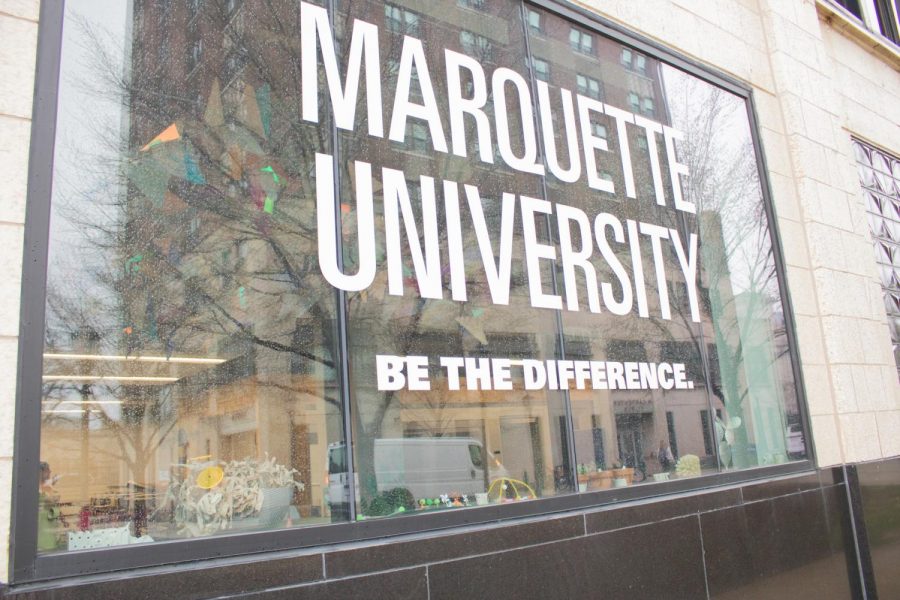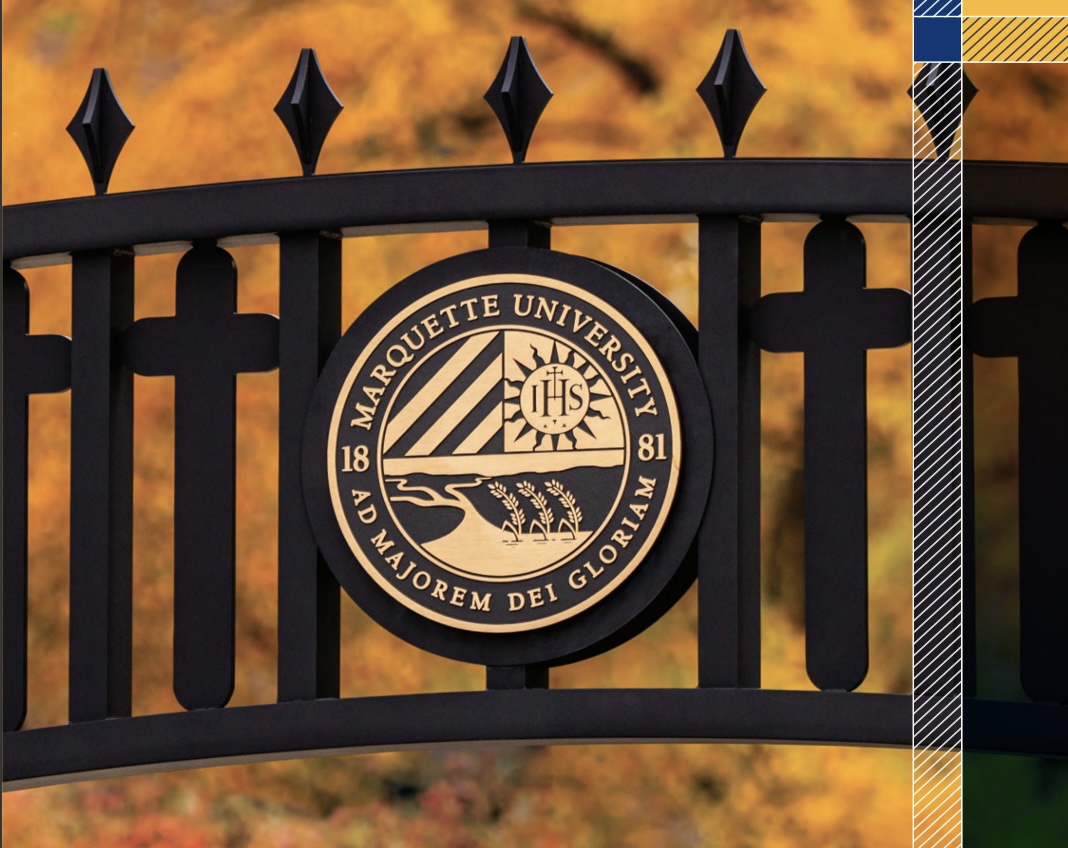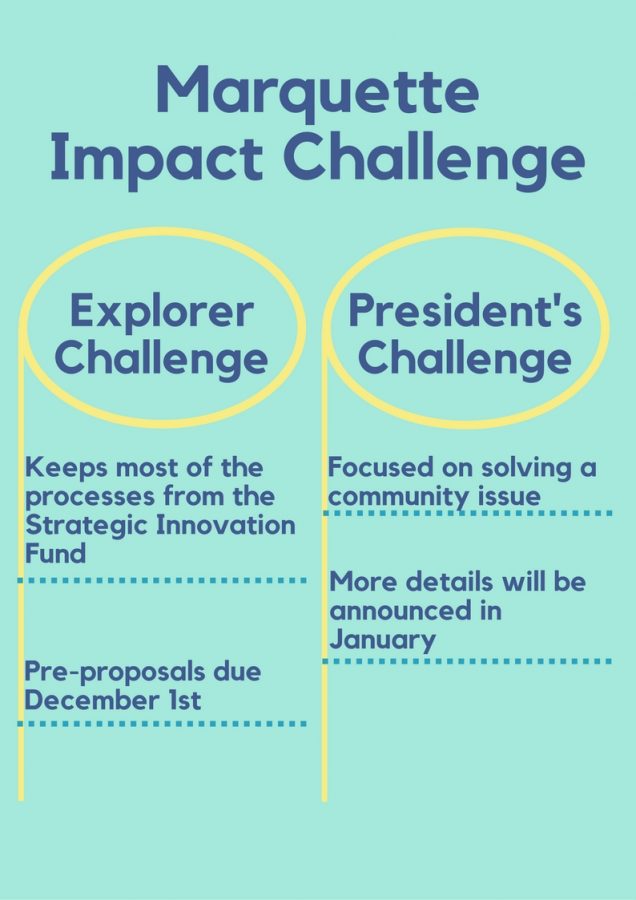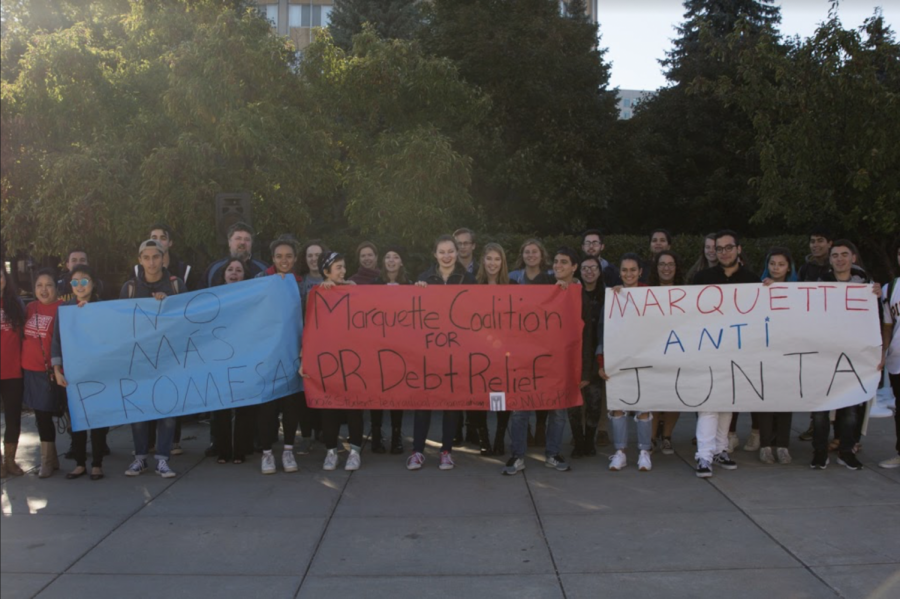In the first three years of Marquette University’s Explorer Challenge, the program has awarded over $7 million to 72 initiatives, according to its annual report. These initiatives have received over $10.5 million in external grants and other revenue. This has returned Marquette’s investment by 45 percent.
The Explorer Challenge, formerly known as the Strategic Innovation Fund, was created by University President Michael Lovell in 2014. It is an opportunity for students, faculty and staff to submit proposals for up to $25,000 in seed money for innovative projects that make an impact and advance Beyond Boundaries, Marquette’s Campus STRATEGIC Plan.
Money can be used for many different things, including research, community and industry partnerships, ideas that will help the university operate more effectively or efficiently. Hossenlopp, vice president for research and innovation and professor of chemistry said the program is currently funded by university donors.
“The process for submitting a pre-proposal, getting feedback and submitting a final proposal was developed by the Innovation Council, a group of students, faculty and staff from across campus,” Hossenlopp said.
The Innovation Council is specifically tasked with determining who will be awarded the funds from the Explorer Challenge. Eric Waters, a member of the council and assistant professor of communication studies, said that they review applications, give feedback and then give their recommendations before the applications are passed onward to President Lovell.
“The Challenge also includes several events: a kick-off and celebration of the newly funded awards in early fall semester, an Ideas Fest for people to start discussing their potential new projects with others on campus during the fall semester and workshops on how to respond to review comments and develop a budget that are held in spring before the final proposals are due.”
Beyond Boundaries is an integral part to the Explorer Challenge. Among other requirements, proposals must clearly identify and advance one or more themes of the strategic plan.
“The Explorer Challenge allows members of the university community to engage in innovative activities that focus on helping one or more of the Beyond Boundaries themes,” Hossenlopp said in an email. “We encourage collaboration across campus areas, as well as with partners outside of Marquette, which is central to the vision of Beyond Boundaries.”
Waters said the Innovation Council first looks at whether or not the idea is truly new and innovative. They also look at the possible impact a project might have on Marquette’s campus or the Milwaukee community, as well as the region, country and world. He said the council also gives recommendations and feedback.
The Explorer Challenge has had a hand in notable Marquette programs and initiatives, such as the creation of the 707 Hub, the MUnch Mates app, the Marquette Visualization Lab located in Engineering Hall, and research about clean water, stroke rehabilitation and student-athlete concussions.
The annual report, Hossenlopp said, provides an opportunity to reflect on the successes of Explorer Challenge projects and monitor the impact that the funding has had on the specific projects, as well as for the university.
“I think it’s really important to showcase the innovation activity that we’re doing on campus, and to give people updates on the different Explorer Challenge opportunities that have been funded,” Kelsey Otero, associate director of of social innovation and who has also helped students with Explorer Challenge projects, said. She said she has worked on a number of proposals, applications and project for the Explorer Challenge. She also said that each student applicant is required to have a staff or faculty advisor, so some come to her.
“There’s always a lot of excitement every year when the challenge first is announced and when people submit applications and when we announce the winners, but it’s really important to keep that momentum going afterwards. I think annual reports like this help to demonstrate the really great, innovative ideas that this campus community is working on generating.”
“People need to know where the money is going,” Waters said. “(The annual report) gives you a description of the various projects that have been funded by the Explorer Challenge. That way, faculty, staff, students, maybe even alumni and donors, can actually see some outcomes of how this money is being invested. It (also) gives a breakdown of who’s involved in these projects.”
Waters said one interesting thing about the Explorer Challenge is that it is open to other members of the community, along with those affiliated with Marquette.
Hossenlopp said the Explorer Challenge is beneficial to Marquette for many reasons, and pointed out that the program recently received national recognition through the University Economic Development Association, receiving the 2018 Award of Excellence and Editor’s Choice Award in the category of innovation.
“The Explorer Challenge is a truly unique program — one that allows students, faculty and staff to all participate,” Hossenlopp said. “In addition to helping the individual projects get launched, the Explorer Challenge is also helping us create an inclusive community of Marquette innovators.”
“I think (the Explorer Challenge) is a great platform and opportunity because it encourages anyone who’s applying to think creatively, outside-of-the-box, and to form alliances with others on campus,” Otero said. “It showcases that we have a lot of amazing talent right here on this campus and there’s a lot of amazing ideas that just need a little bit of seed funding.”






